Israel Army Tells All Gaza City Residents To Flee Heavy Battles
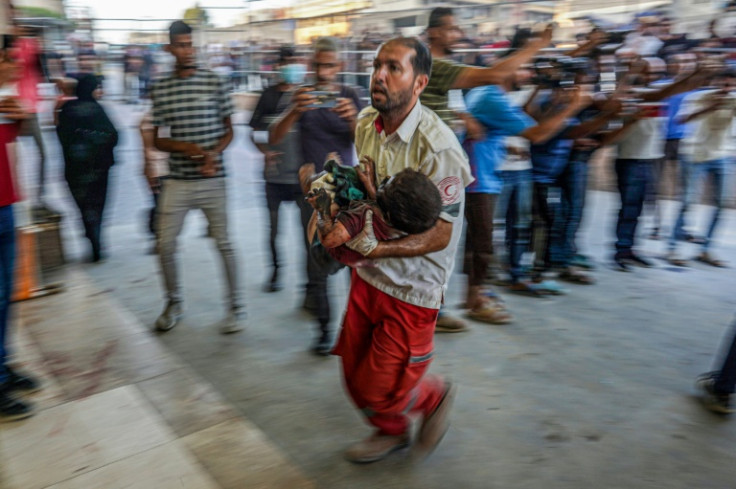
The Israeli army dropped thousands of leaflets over Gaza City on Wednesday urging all residents to flee a heavy offensive that has rocked the main city of the besieged Palestinian territory.
The leaflets, addressed to "everyone in Gaza City", set out designated escape routes to the south and warned that the urban area, previously home to more than half a million people, would "remain a dangerous combat zone".
The warning follows three partial evacuation orders and came as Israeli troops, backed by tanks and aircraft, have fought Hamas and Islamic Jihad militants in the heaviest combat operations the city has seen in months.
In one operation, the army said it had killed militants and found weapons inside the long-vacated Gaza City headquarters of the UN agency for Palestinian refugees, UNRWA.
Elsewhere across Gaza, deadly strikes have hit four schools used as shelters in four days, sparking international outrage.
The upsurge in fighting and displacement came as mediator Qatar was due to resume talks Wednesday toward a truce and hostage release deal to end the war, now grinding on into its 10th month.
An Israeli delegation led by Mossad chief David Barnea arrived in Doha for the talks, a source with knowledge of the negotiations said, speaking on condition of anonymity because of their sensitivity.
CIA director William Burns was also expected in the Qatari capital, after holding talks in Cairo on Tuesday.
The latest fighting in Gaza has newly displaced 350,000 civilians, said UNRWA chief Philippe Lazzarini, who spoke before the latest leaflet drop and said "there is absolutely no safe space in Gaza".
One woman carrying her scant belongings through the bombed-out wasteland, Nimr al-Jamal, told AFP on Tuesday that "this is the 12th time" her family has had to flee.
"How many times can we endure this? A thousand times? Where will we end up?"
Hamas, whose October 7 attack started the war, has accused Israeli Prime Minister Benjamin Netanyahu of escalating the fighting to derail the latest ceasefire talks.
The Islamist group's armed wing said this week the resurgent battles in Gaza City were "the most intense in months", while deadly strikes have also hit elsewhere across the territory.
Israel's military said it had "eliminated" Palestinian militants operating from inside the city's UNRWA headquarters and found "large amounts of weapons" inside.
The UN agency's head of communications Juliette Touma told AFP it was hard to know if people were sheltering in the building "as we don't have regular access to Gaza City".
The Israeli army said it was reviewing an attack on Tuesday in which hospital sources said at least 29 people were killed in a school used as a shelter in the southern Khan Yunis area.
Germany said the strike was "unacceptable" and called for a rapid investigation into the incident.
"Civilians, especially children, must not get caught in the crossfire," the foreign ministry posted on X. "The repeated attacks on schools by the Israeli army must stop and an investigation must come quickly."
Gaza's Hamas government said a "majority" of the dead were women and children.
AFP footage showed the wounded being rushed to the nearby Nasser hospital, many screaming in pain, as relatives wailed in grief for the dead.
Another survivor, Mohamed Sukkar, said that "without any warning, rockets were fired at a group of people who were browsing the internet. They were not part of the resistance nor were they armed, they were all civilians."
The military said that the strike had killed a Hamas "terrorist" who had taken part in the October 7 attack and that it was "looking into the reports that civilians were harmed, adjacent to the Al Awda school", which it acknowledged was "near the location of the strike".
"The incident is under review."
Three previous Israeli strikes since Saturday on Gaza schools used by displaced Palestinians have killed a total of at least 20 people, according to Gaza officials and rescue services.
Lazzarini wrote on social media site X that "schools have gone from safe places of education and hope for children to overcrowded shelters and often ending up a place of death and misery".
Hamas's October 7 attack on southern Israel resulted in the deaths of 1,195 people, mostly civilians, according to an AFP tally based on Israeli figures.
The militants seized 251 hostages, 116 of whom remain in Gaza, including 42 the military says are dead.
Israel responded with a military offensive that has killed at least 38,295 people in Gaza, also mostly civilians, according to figures from the Hamas-run territory's health ministry.
Israel has also imposed a punishing siege on Gaza's 2.4 million people, eased only by sporadic aid deliveries.
Independent UN rights experts on Tuesday accused Israel of carrying out a "targeted starvation campaign" that constituted "a form of genocidal violence".
Israel's mission to the UN in Geneva accused the panel's members of "spreading misinformation" and "supporting Hamas propaganda".
Elad Goren of Israel's COGAT, the military department handling aid to Gaza, said an average of 250 trucks were entering through the Kerem Shalom crossing, half of the daily capacity -- a shortfall he blamed on problems on the Palestinian side.
In Israel, meanwhile, protesters have regularly taken to the streets to demand the Netanyahu government strike a deal to bring home the hostages.
Some of the captives' relatives spoke about their fear, especially on the risk of female captives being abused, at a virtual press conference by the Hostages Families Forum.
"My life stopped on the 7th of October," said Simona Steinbrecher, mother of the hostage Doron Steinbrecher. "I know she is alone there and I cannot help her."
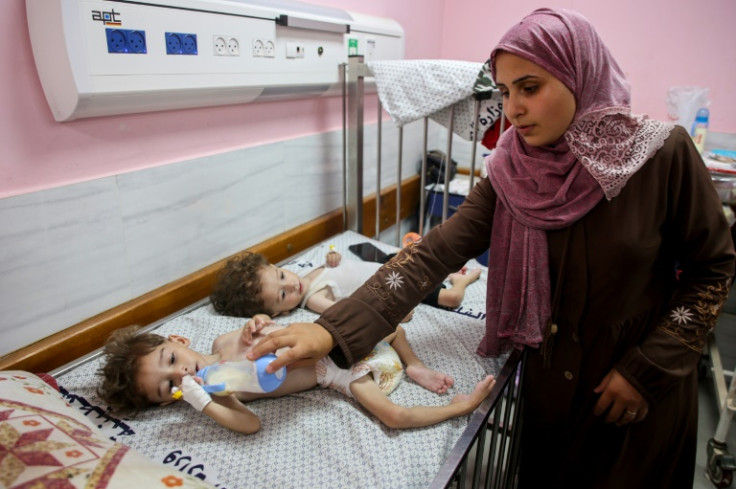
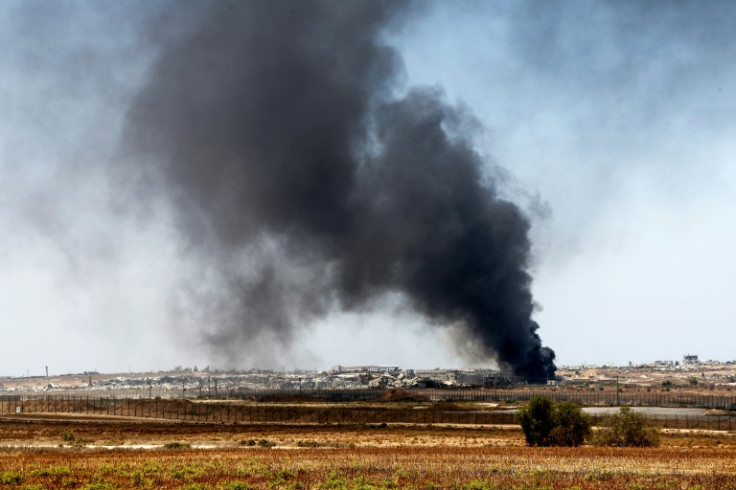
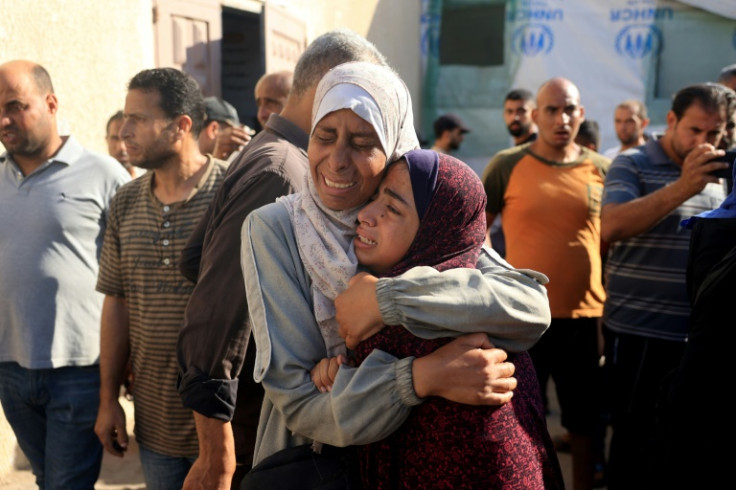
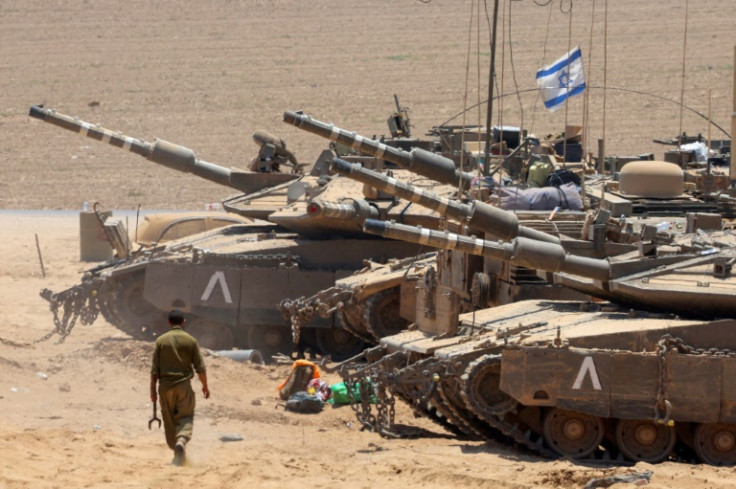
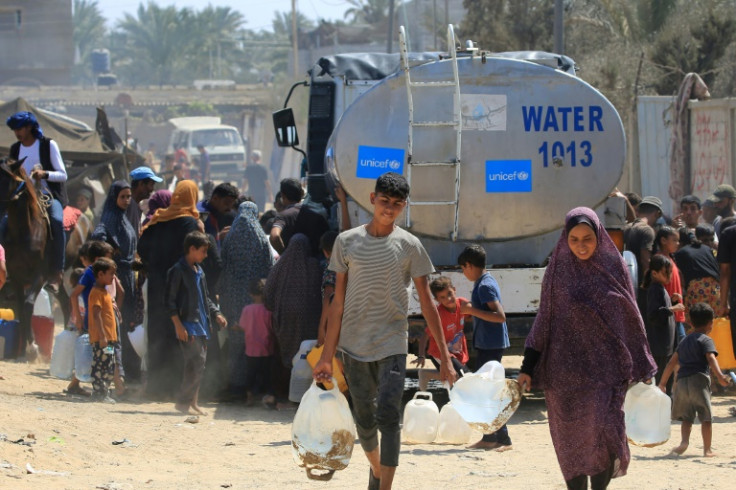
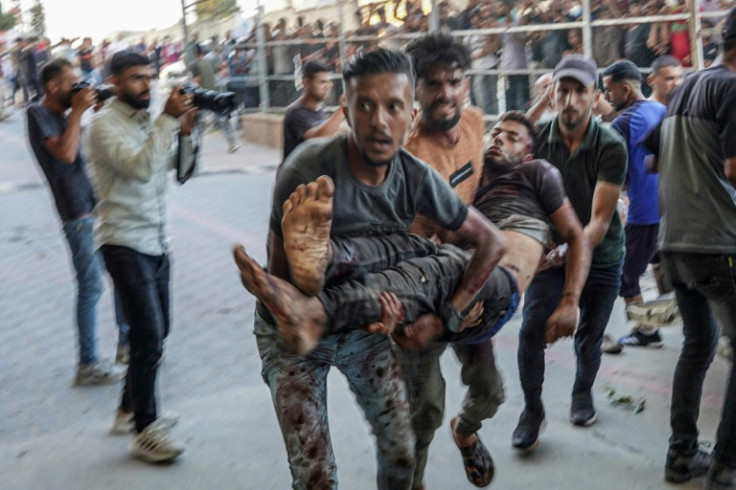
© Copyright AFP 2025. All rights reserved.





















